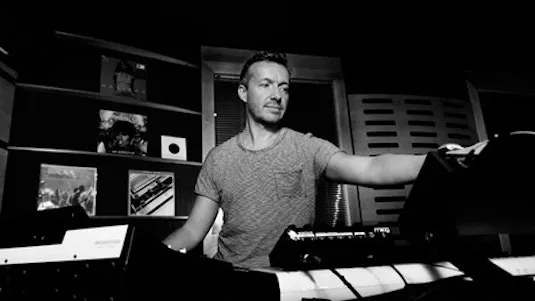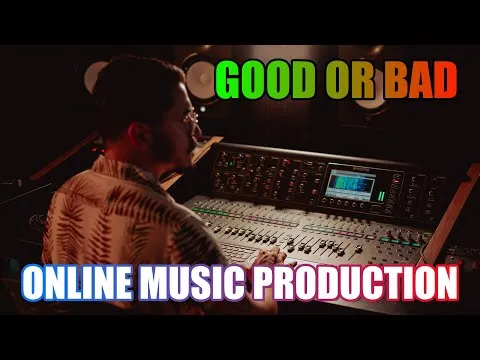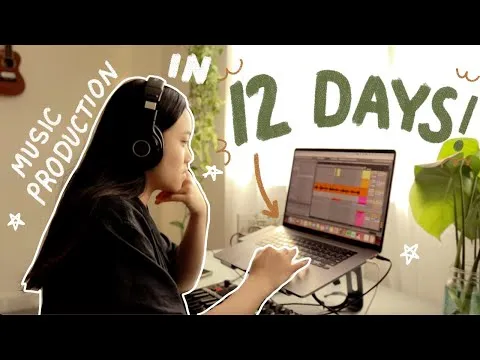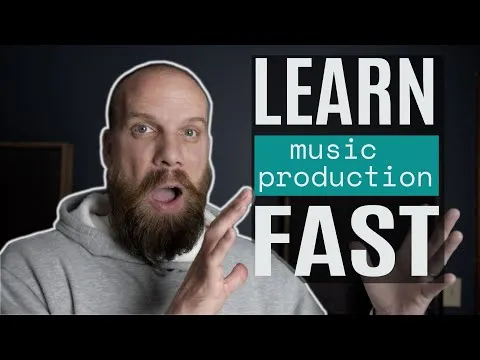
Introduction to Music Production 
This Specialization provides an introduction to the fundamentals of music production, including recording, mixing, and mastering. Learners have until May 22, 2016 to upgrade or apply for Financial Aid in order to earn a Specialization Certificate before the program closes for new enrollment on May 23, 2016. ▼
ADVERTISEMENT
Course Feature
![]() Cost:
Cost:
Free
![]() Provider:
Provider:
Coursera
![]() Certificate:
Certificate:
Paid Certification
![]() Language:
Language:
English
![]() Start Date:
Start Date:
30th May, 2016
Course Overview
❗The content presented here is sourced directly from Coursera platform. For comprehensive course details, including enrollment information, simply click on the 'Go to class' link on our website.
Updated in [March 06th, 2023]
This course, Introduction to Music Production, provides an overview of the music production process, including recording, editing, and mixing. Learners will gain an understanding of the tools available to them to create contemporary music on their computer. The course will cover topics such as the nature of sound, components necessary to record audio into a computer, Digital Audio Workstation (DAW) editing tools, mixing boards, and audio effects. By the end of the course, learners will have the knowledge to express their creativity and share their ideas with the world.
[Applications]
The application of this course can be seen in the ability to create and perform contemporary music. After completing this course, learners will have the knowledge and skills to understand the music production process, including recording, editing, and mixing, and the tools available to them to create contemporary music on their computer. Learners will also be able to use the Digital Audio Workstation (DAW) to organize sound along a timeline, as well as use the mixing board to combine and process sound. Finally, learners will be able to apply their creativity to the music production process to share their ideas with the world.
[Career Paths]
Recommended Career Paths:
1. Music Producer: Music producers are responsible for overseeing the entire music production process, from pre-production to post-production. They are responsible for selecting the right musicians, recording and editing the music, and mixing and mastering the final product. Music producers must have a deep understanding of the music production process and the tools available to them. They must also have excellent communication and organizational skills.
2. Audio Engineer: Audio engineers are responsible for setting up and operating the equipment used to record, edit, and mix music. They must have a deep understanding of the technical aspects of music production, including the use of microphones, mixers, and other audio equipment. Audio engineers must also have excellent problem-solving and troubleshooting skills.
3. Music Composer: Music composers are responsible for creating original music for a variety of media, including film, television, video games, and commercials. They must have a deep understanding of music theory and composition, as well as the ability to create music that fits the mood and tone of the project. Music composers must also have excellent communication and collaboration skills.
4. Music Supervisor: Music supervisors are responsible for selecting and licensing music for use in films, television shows, video games, and other media. They must have a deep understanding of the music industry, including copyright law and licensing agreements. Music supervisors must also have excellent communication and negotiation skills.
Developing Trends:
1. Music Production Software: Music production software is becoming increasingly powerful and user-friendly, allowing producers to create professional-quality music with minimal effort.
2. Virtual Instruments: Virtual instruments are becoming increasingly realistic and versatile, allowing producers to create realistic-sounding music without the need for expensive hardware.
3. Online Collaboration: Online collaboration tools are making it easier for producers to collaborate with other musicians and producers from around the world.
4. Streaming Services: Streaming services are becoming increasingly popular, allowing producers to reach a wider audience and monetize their music.
[Education Paths]
Recommended Degree Paths:
1. Bachelor of Music Production: This degree program provides students with the skills and knowledge necessary to become successful music producers. Students will learn about the fundamentals of music production, including recording, editing, mixing, and mastering. They will also gain an understanding of the tools and techniques used in modern music production, such as digital audio workstations, synthesizers, and sound design. Additionally, students will learn about the business side of music production, such as marketing, promotion, and copyright law.
2. Master of Music Technology: This degree program provides students with an in-depth understanding of the tools and techniques used in modern music production. Students will learn about the fundamentals of music production, including recording, editing, mixing, and mastering. They will also gain an understanding of the tools and techniques used in modern music production, such as digital audio workstations, synthesizers, and sound design. Additionally, students will learn about the business side of music production, such as marketing, promotion, and copyright law.
3. Master of Music Composition: This degree program provides students with the skills and knowledge necessary to become successful music composers. Students will learn about the fundamentals of music composition, including harmony, counterpoint, orchestration, and arranging. They will also gain an understanding of the tools and techniques used in modern music composition, such as digital audio workstations, synthesizers, and sound design. Additionally, students will learn about the business side of music composition, such as marketing, promotion, and copyright law.
4. Master of Music Business: This degree program provides students with the skills and knowledge necessary to become successful music business professionals. Students will learn about the fundamentals of music business, including marketing, promotion, copyright law, and music industry trends. They will also gain an understanding of the tools and techniques used in modern music business, such as digital audio workstations, synthesizers, and sound design. Additionally, students will learn about the business side of music production, such as marketing, promotion, and copyright law.
Developing Trends:
1. Music Production: With the introduction of high-quality-low-cost software and hardware, the tools of music production are now available to the masses. This has led to an increase in the number of people producing music, as well as an increase in the quality of music being produced. Additionally, the use of digital audio workstations (DAWs) has become increasingly popular, as they provide a powerful and intuitive way to create music.
2. Music Technology: Music technology has seen a huge surge in recent years, with the introduction of new tools and techniques that allow for more creative and expressive music production. This includes the use of virtual instruments, sound design, and audio effects, as well as the use of software and hardware to create and manipulate sound.
3. Music Composition: Music composition has become increasingly popular in recent years, as more people are looking to create their own music. This has led to an increase in the use of digital audio workstations (DAWs) and virtual instruments, as well as the use of software and hardware to create and manipulate sound. Additionally, the use of music theory and composition techniques has become increasingly important in modern music production.
4. Music Business: The music business has seen a huge shift in recent years, with the introduction of new technologies and platforms that allow for more efficient and effective music promotion and distribution. Additionally, the use of digital audio workstations (DAWs) and virtual instruments has become increasingly popular, as they provide a powerful and intuitive way to create music.
Course Provider

Provider Coursera's Stats at AZClass
Discussion and Reviews
0.0 (Based on 0 reviews)
Explore Similar Online Courses

Special Embroidery Videos

Dynamic Anatomy for Artists - Drawing the Muscles of the Arm

Python for Informatics: Exploring Information

Social Network Analysis

Introduction to Systematic Review and Meta-Analysis

The Analytics Edge

DCO042 - Python For Informatics

Causal Diagrams: Draw Your Assumptions Before Your Conclusions

Whole genome sequencing of bacterial genomes - tools and applications

online music production course good or bad

I Learn How to Produce Music in 12 DAYS!

Music Production Classes Online
 Related Categories
Related Categories
 Popular Providers
Popular Providers
Quiz
 Submitted Sucessfully
Submitted Sucessfully
1. What is the deadline for new learner enrollment in the Modern Musician Specialization?
2. What is the main purpose of this course?
3. What is the main tool used for editing in contemporary music production?


Start your review of Introduction to Music Production